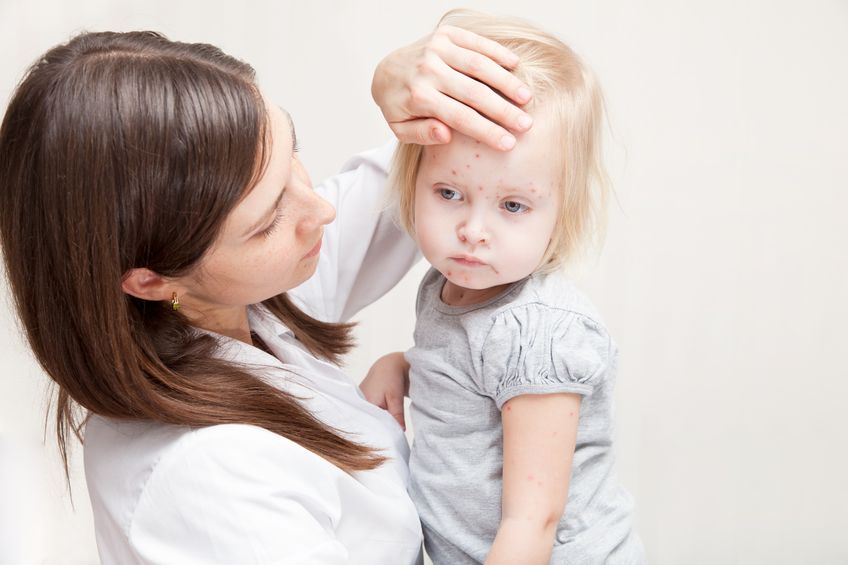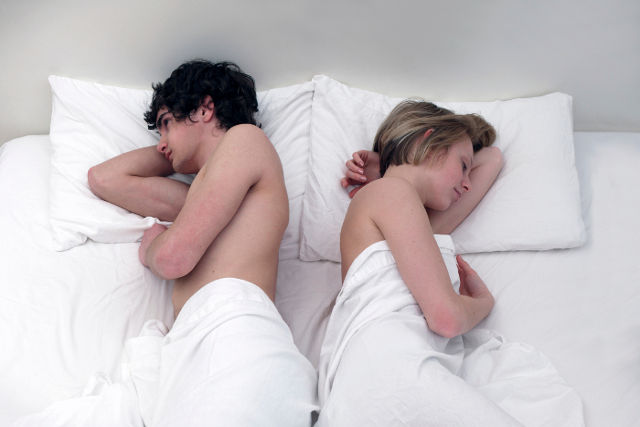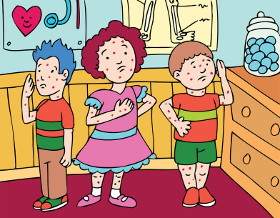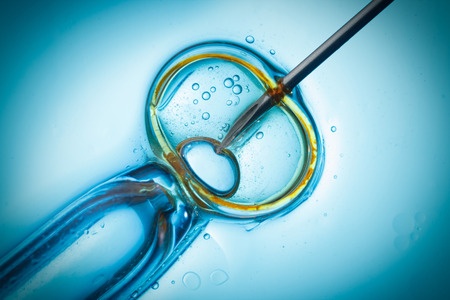More and more males are beginning to be aware of andropause.
To be more accurate, there is no such condition called andropause which was coined initially to reflect that the hormonal changes specifically testosterone and its associated symptoms in males as they age is somewhat similar to those in women as they undergo menopause.
In a study done in Singapore between 2007 – 2009, it was estimated that 26.4% of men suffer from androgen deficiency.
The degree of decline of testosterone levels in males as they age is not as much as the drop in estrogen levels in females when they undergo menopause.
In fact, the decrease in testosterone in males over the age of 40 is roughly about 1% each year of life. Between the age of 20-30 years old, the level of testosterone in males is the highest.
So what is androgen deficiency or testosterone deficiency? Let me illustrate with two examples (names and backgrounds have been changed).
Chua, 46 years old
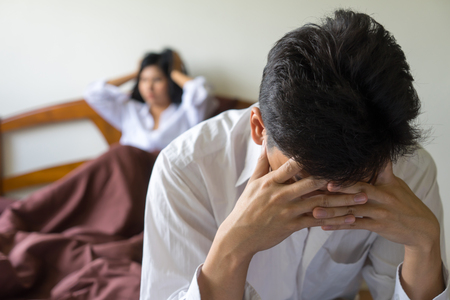
Chua has experienced a downward spiral in his sex drive and also experienced issues getting and sustaining an erection for the past few months. He is obese, hypertensive, and perhaps too busy at work.
Because of his decline in sex drive, his wife suspected he was having an affair. So he sought medical help.
I suggested to Chua blood tests to ascertain his testosterone and associated hormone levels. The tests returned a low testosterone level. I prescribed an increase in activity levels by 20-minute walks 3 to 4 times a week, to first get his weight down.
After getting 3kg off, his testosterone still returned a low level on blood tests. So I prescribed a testosterone therapy over 9 months.
A few months later, Chua reported a definitive improvement in his sex drive and he felt as if he was in his 30s. Although he has more weight to lose, I assured him that weight loss will be a lifelong battle and encouraged him to continue his walks, exercises, and a healthy diet.
Ismail, 50 years old
Ismail was happily married with 3 grown-up children and 4 grandchildren. However, in the last year, his relationship with his family has become more strained as he frequently became irrationally angry, and suffered from hot flushes which were an embarrassment. He has a history of hypertension and high cholesterol which is under medication control.
He has seen other doctors and was told that everything was normal and one even suggested for him to see a psychologist. When he saw me, I reassured him that I would exhaust all diagnostic means.
On review, his testosterone levels were indeed low and I suggest to start him on testosterone replacement. After 6 months, his symptoms are much improved. His wife also remarked that he was almost back to his normal self.
What causes Androgen Deficiency?
There are several causes of Androgen Deficiency:
- Genetic disorders
- Medical problems
- Damage to the testes or pituitary gland
In cases of genetic disorders like Klinefelter’s where the male was born with an extra copy X chromosome, they typically are unable to produce sperm or enough of the male hormone, testosterone, for the body’s needs. As a result, they fail to develop male sexual characteristics and also the ability to produce sperm.
Rarely, conditions of the pituitary gland can cause androgen deficiency. This is a tiny gland in the base brain that produces 2 hormones called Luteinising Hormone (LH) and Follicle Stimulating Hormone (FSH) which I needed by both males and females for normal reproductive function. In males, these 2 hormones are needed to stimulate the testes to produce testosterone and sperm.
One of the most common pituitary gland conditions is a non-cancerous growth in the pituitary gland which is called adenoma where it enlarges to the point where it puts pressure on the gland itself thus causing the gland to stop producing the 2 hormones.
Medical problems such as obesity are associated with low testosterone levels. In fact, it was found that very obese males can have 25% lower level of testosterone than non-obese males.
It is also found that when males reduce their body fat levels their testosterone levels will increase. This is due to the fact that the fat cells are efficient in converting testosterone to the female hormone called estrogen.
Additionally, patients with diabetes are more likely to have low testosterone levels. Several studies have also shown an association between low testosterone levels and cardiovascular risk.
A number of studies have shown that men who had coronary artery disease have lower levels of testosterone levels.
Whether it is low testosterone causing the increased risk of cardiovascular risk or the other way round remains to be elucidated. Also, patients with depression also tend to have lower testosterone levels as well.
What are some common symptoms that men may experience if they have a testosterone deficiency?
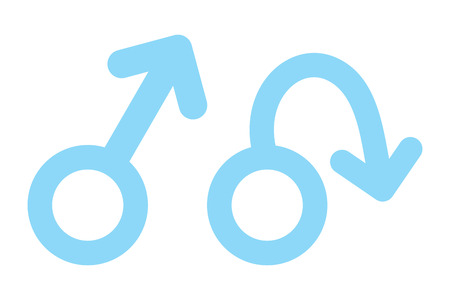
- Low sex drive (low libido)
- Erectile dysfunction (difficulty getting an erection or sustaining erection)
- Weight gain especially around the waist
- Tiredness
- Mood changes (low mood and/or irritability)
One study showed that 16% of men who have androgen deficiency have erection issues and 12% have low libido while 20% would have 2 or more of the other symptoms. These symptoms are disturbing for many males as it affects their daily life and their relationship with their partner and family members.
Are there any dangers to having low testosterone levels?
As mentioned previously, there is a growing body of evidence showing an association between low testosterone levels and cardiovascular risk and also mortality (death).
How does it get diagnosed?
If you think that you or your partner may be suffering from androgen deficiency, please visit your doctor (GP) and discuss further. Some of the symptoms of androgen deficiency may be caused by other medical conditions such as anaemia, thyroid conditions or even depression.
It is important to see your GP to ascertain if your symptoms may be due to other medical conditions. Your GP may order some blood tests to rule out some of these medical conditions and also perform a hormonal panel to check for various hormones such as testosterone, LH and FSH.
If your testosterone level is indeed low and other medical conditions have been ruled out, your GP can discuss with you about treatment options.
Are there any remedies for androgen deficiency?
Some studies show that resistance weight training can give a modest boost to the testosterone level. Also reducing body fat if there is high body fat level can help to increase the level of testosterone. This can be achieved via appropriate diet and exercise like High-Intensity Interval Training. As with any diet and exercise advice, please consult your doctor for further advice.
There is a myriad of various herbal/ natural supplements you can get from the retail pharmacy and till date, there is no conclusive evidence to show that any of such supplements can increase testosterone. Also, do be careful of some products may be adulterated with western medications which may cause side effects or other health issues.
In terms of treatment of androgen deficiency, there are several options available in Singapore.
Testosterone Injection – This is an option for those who do not wish to take medication on a daily basis. Generally, this injection is given once every 8-12 weeks depending on the individual.
Testosterone Capsules – This is an option for those who do not like needles and prefer the oral route. The absorption of the capsule dependent on the fat content of the food intake, it is better absorbed with higher fat food intake.
Testosterone Gel – This option provides the best absorption and most stable levels compared to the other 2 routes of administration. It is also the easiest option for most people as it only requires you to apply the gel on the skin.
There is the precaution of accidentally transferring the testosterone to partners or children, especially if the partner or children comes in contact with the gel before it dries completely.
How can patients reduce the symptoms?
Symptoms of androgen deficiency are best managed with a combination of a healthy lifestyle (exercise, reducing fat loss) and also seeking help from your GP.
How can partners help their husbands going through androgen deficiency?
Just as women who undergo menopause need support from their partner and family, males undergoing androgen deficiency also need psychological support and understanding from their partners.
It can be a trying time for both parties especially when symptoms like erectile dysfunction or mood changes occur. It is important to maintain an open conversation with each other to alleviate fears and expectations.
Partners can encourage men to seek advice from their GP and if necessary seek treatment. Finally, both partners can embark on exercise program and diet program together and this can help to foster a closer relationship at the same time as well.
This article is contributed by Dr Julian Ng. Dr Ng is the resident doctor at DTAP Clinic Novena, focusing on Men’s health, Sexually Transmitted Diseases (STDs), Paediatrics and Chronic Diseases Management.
* * * * *
Stay in touch! Subscribe to our Telegram here for our latest updates.
Want to be heard and seen by over 100,000 parents in Singapore? We can help! Leave your contact here and we’ll be in touch.






































